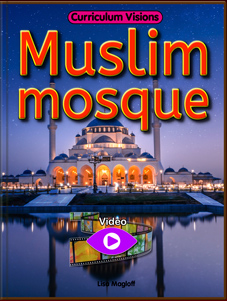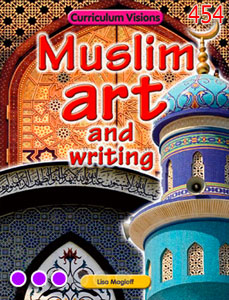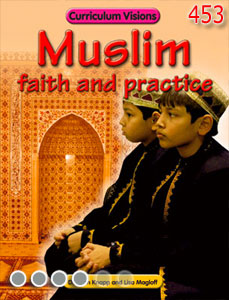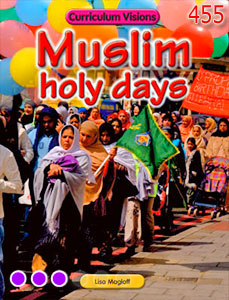The prophet Mohammed (pbuh) was born in 570 ce in modern day Saudi Arabia. The name Mohammed (pbuh) means ‘highly praised’.
Mohammed’s (pbuh) early life
Mohammed’s (pbuh) parents died when he was very young, and he was brought up near Mecca by his grandfather and then by his uncle.
As a boy, Mohammed (pbuh) worked hard, tending sheep for his family and later becoming a trader and caravan leader.
When he was 25 years old, a rich widow named Khadijah hired him to work as a trader. The two fell in love and were married soon after. They had six children, four girls and two boys, but not all of them survived to adulthood.
At this time, the people of Mecca worshipped many gods and idols. All of these were kept in a building called the Ka’ba in Mecca, which was believed to be the site of the first place of worship on Earth, built by Adam.
When Mohammed (pbuh) was about 35, the Ka’ba caught fire and burnt. Everyone in Mecca helped to rebuild it. When it came to replacing the sacred black stone inside of the Ka’ba no one could agree who should have the honour.
Mohammed (pbuh) placed the stone on a clean cloth, got all of the leaders to lift it together and then he placed the stone in the Ka’ba.
From this time onward, Mohammed (pbuh) became greatly concerned about the way that the people of Mecca worshipped many gods instead of one God.
The revelations begin
Mohammed (pbuh) would often go into the desert, to a cave on Mount Hira, and think about the nature of God. In 610 ce, when Mohammed (pbuh) was 40, the angel Gabriel came to visit him in the cave, and announced that Mohammed (pbuh) had been chosen as God’s messenger.
At first Mohammed (pbuh) preached among his friends, but later he preached more openly and in front of more and more people.
The emigration
The leaders of Mecca became very angry with Mohammed (pbuh), as they did not want to give up their gods. In 622, Mohammed (pbuh) and his followers were forced to flee Mecca to the city of Medina, 250 miles away.
This escape to Medina is called the flight or emigration (hijirah in Arabic) and it is the date on which the Muslim calendar starts.
In Medina, people were familiar with the idea of one God and after just a few years, most of them had converted to Islam.
In 628, the leaders of Mecca raised an army to fight Mohammed (pbuh), but he was able to defeat them. Mohammed (pbuh) returned to Mecca that year and from this time on he was accepted by the people as the true prophet of God.
By 632, Islam had spread around the Arabian peninsula. In that year, Mohammed (pbuh) made a special trip to the Ka’ba in Mecca. On a nearby hill he preached his last sermon. Mohammed (pbuh) died on June 8, 632.
The meaning of the prophet’s life
Muslims believe that Mohammed (pbuh) had to struggle and suffer many times, just as we all do in our lives. For example, he suffered when he was kicked out of Mecca. Mohammed’s (pbuh) life, therefore, was a demonstration of the battle between good and evil, truth and falsehood, justice and oppression.
The prophet Mohammed’s (pbuh) suffering is also a reminder that everyone can be either good or bad, and that we have to struggle in order to overcome evil and be good people.
As a result, Muslims believe that one of the best ways to overcome evil is to love the prophet Mohammed (pbuh) and follow his teachings and his example in how we live our lives.







